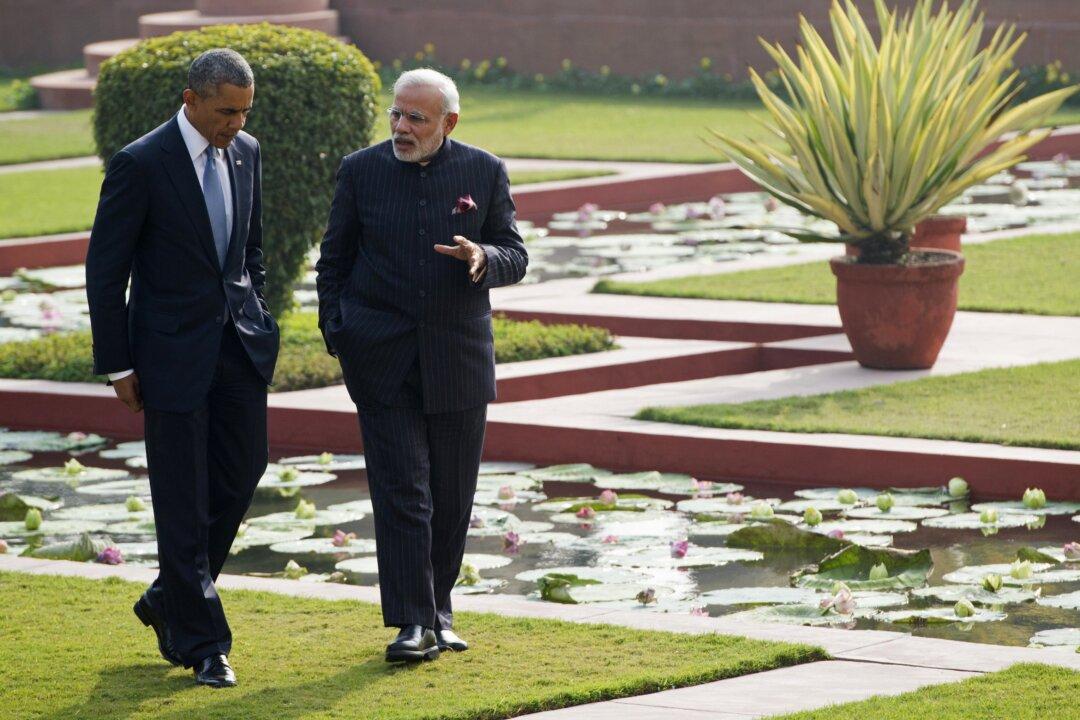According to China’s media, the personal warmth between President Barack Obama and Prime Minister Narendra Modi of India is a weak reed to build a long-lasting alliance between nations whose fundamental interests differ so much. With claims like this, China’s press has sought to downplay a U.S.-India summit that saw the two giants unite in measures opposing China.
The two leaders got off to a heartwarming start when they embraced each other like pals upon Obama’s arrival in India. When the two sat down to talk, they spent the first 45 minutes focusing on one topic—China.
A joint U.S-India statement called for the revival of a security network involving the United States, India, Japan, and Australia.



